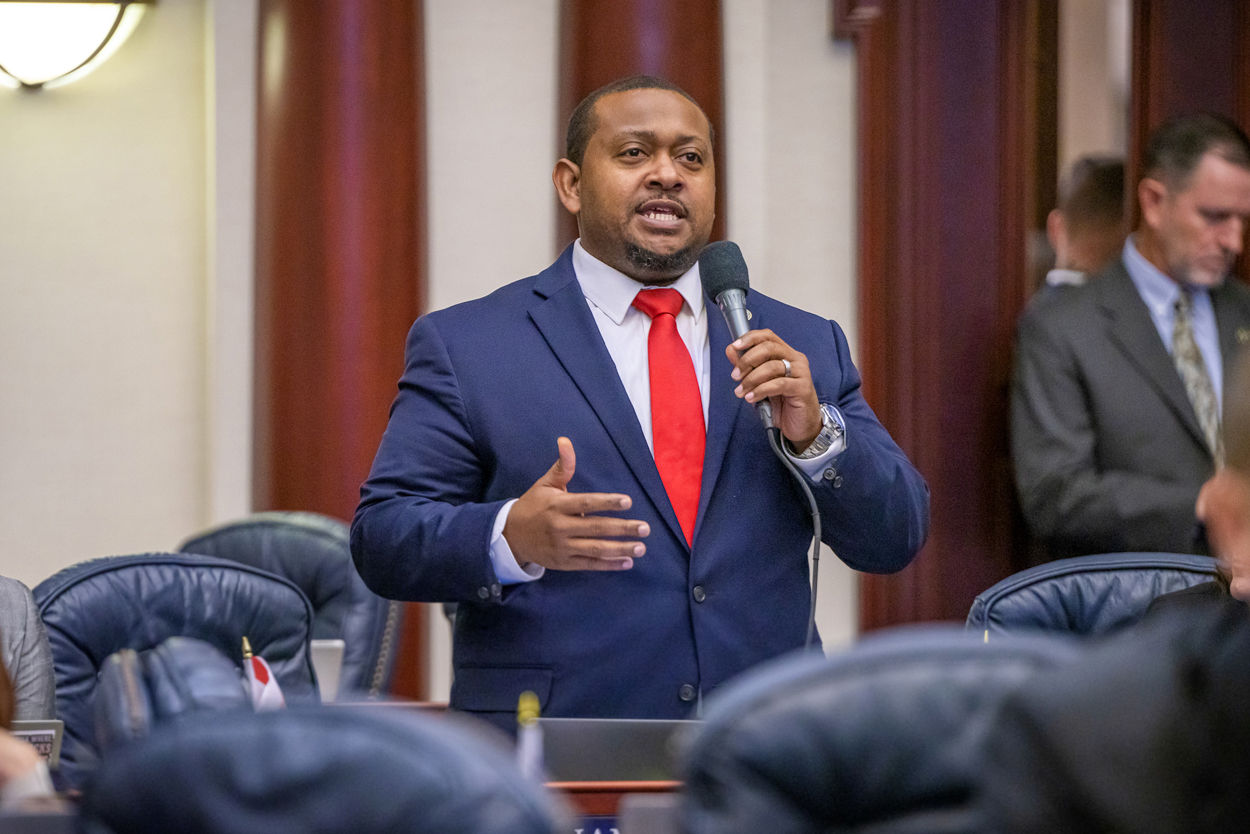Kevin Chambliss selected as inaugural Future Caucus innovation fellow
January 17, 2024
He and 12 other ‘Healthcare Innovation Fellows’ will focus their efforts primarily on maternal and child wellness.

By Jesse Scheckner | Florida Politics
Published January 17, 2024
Homestead Democratic state Rep. Kevin Chambliss will be among 29 millennial and Generation Z state lawmakers to participate in a fellowship program the bipartisan Future Caucus is launching this month to foster collaborative policymaking.
Chambliss is among a baker’s dozen of “Healthcare Innovation Fellows” in the program, which also has fellows for “Energy & Environment” and “Strengthening Democracy,” a Future Caucus press note said.
So far, he is the only elected official from Florida participating this year. His selection, the press note said, “is the result of his willingness to work across the aisle and his commitment to prioritizing legislative results over scoring political points.”
Chambliss said in a statement Wednesday that he is “deeply honored” to be part of the program.
“During my time representing the 117th District in the Florida House of Representatives, I have dedicated myself to creating bipartisan coalitions to tackle Florida’s most pressing issues,” he said. “As a Healthcare Innovation Fellow for 2024, I look forward to connecting with other legislators dedicated to solving the issues with long-term solutions.”
The one-year Future Caucus Innovation Fellowship kicks off Saturday with a virtual “Thinking Forum.” During the event, the Future Caucus said, fellows will “learn the basics of strategic foresight — a skill used by both Fortune 500 CEOs and the military to make decisions when the future is uncertain.”
Fellows will also take part in designing an in-person “Policy Innovation Seminar” and develop a “bipartisan action plan that catalyzes their vision of forward-looking legislative solutions.”
Past Future Caucus seminars and roundtables have taken place at the National Renewable Energy Lab in Golden, Colorado, and the Ronald Reagan Presidential Library near Malibu, California.
“We are so excited to announce this year’s inaugural class of Innovation Fellows,” Future Caucus President and CEO Layla Zaidane said in a statement. “The 29 young lawmakers selected for this fellowship represent a more promising future for our country, one where the brightest minds can come together, despite partisan differences, and get things done.”
Other “Healthcare Innovation Fellows,” who will work “with a particular focus on maternal health and child wellness,” include Democratic Virginia Delegate Elizabeth Bennett-Parker, Republican Alaska state Sen. David Wilson, Republican state Reps. Tyler Clancy of Utah and Aaron Pilkington of Arkansas, Democratic Illinois state Sen. Cristina Castro, and Democratic state Reps. Christina Haswood of Kansas, Ashley Hudson of Arkansas, Greggor Ilagan of Hawaii, Sherae’a Moore of Delaware, Megan Srinivas of Iowa, Zakiya Summers of Mississippi and Matthew Willard of Louisiana.
“Strengthening Democracy Fellows” include Democratic Maryland Delegate Stuart Schmidt, Republican state Reps. Devin Carney of Connecticut and Michael Smith of Delaware, and Democratic state Reps. Angela Brennan of New Hampshire, Brandon Woodard of Kansas and Monique Priestley, Mike Rice and Mary-Katherine Stone of Vermont.
“Energy & Environment Fellows” include Democratic state Sens. Meghan Kallman of Rhode Island and Löki Gale Tobin of Arkansas, Republican Pennsylvania state Rep. Torren Ecker, and Democratic state Reps. Raghib Allie-Brennan of Connecticut, Elinor Levin of Iowa and Rebecca McWilliams of New Hampshire.
The Washington, D.C.-headquartered Future Caucus started as the Millennial Action Project in 2013. It rebranded a decade later.
Former Republican state Rep. José Félix Díaz sits on the Future Caucus’ Board of Directors. Former Republican U.S. Rep. Carlos Curbelo is a member of its Advisory Board.






Join 1,900+ BIPARTISAN LEADERS NATIONWIDE
Be a part of a network of lawmakers committed to governing effectively, passing more representative public policy, and increasing public trust in democracy.